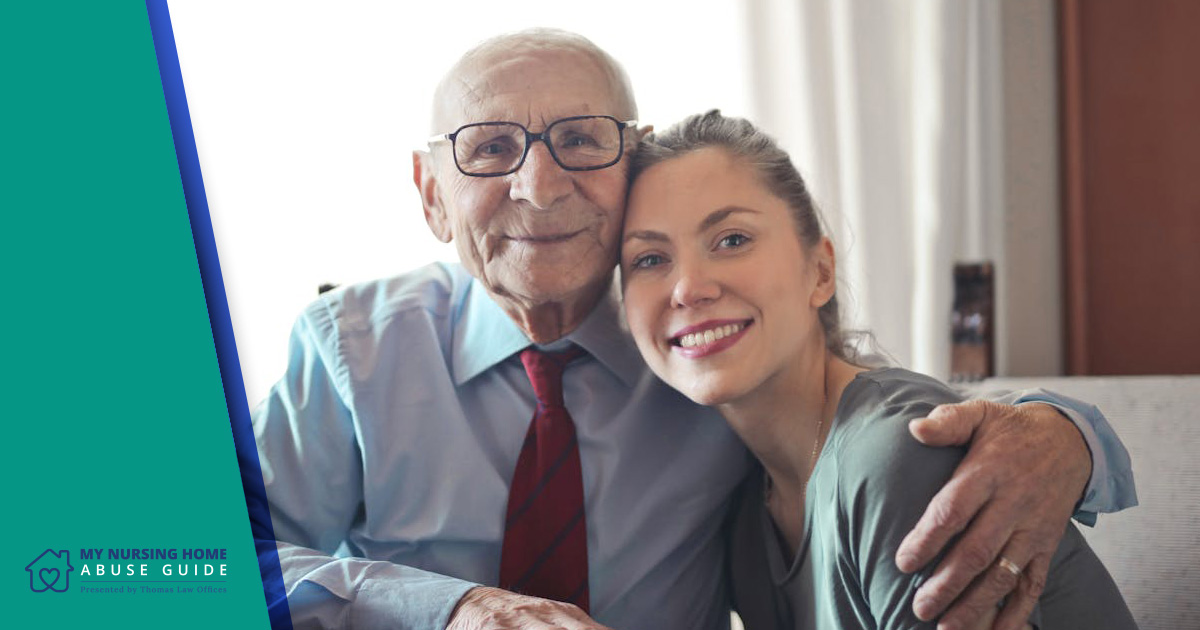Your Guide to Nursing Home Abuse & Prevention
Millions of elderly adults live in nursing home facilities.
Every one of them deserves to feel safe, protected, and respected.
Millions of elderly adults live in nursing home facilities.
Every one of them deserves to feel safe, protected, and respected.

The last time the U.S. Department of Health and Human Services conducted a survey in 2022, they found that over 1.2 million residents lived in more than 15,000 certified nursing homes. The majority of those residents have friends and family who visit on a regular basis. If you have a loved one who is making the transition to a nursing home facility, you want to make the most of your visits.
Those visits serve two purposes. The more important is to check in with our loved ones to see how they’re doing and catch them up with all the family news. The other purpose is ensuring the nursing home maintains the standard of care they promised when you contracted with them to take in your loved one. Even though they are providing that support, you will always be your loved one’s primary caregiver, and it falls on you to keep the nursing home accountable.
The following guide can help you plan for your visit and provide a list of warning signs of neglect to look out for.
It is essential to plan your visit by coordinating with the staff. After your loved one has been living in the nursing home for a few weeks, they will develop a routine that the staff will become familiar with. That includes when they might be engaged in particular activities. You don’t want your visit to pull them from an event they enjoy. Additionally, you might want to find out when they have the most energy. For instance, they might get into a routine of napping in the afternoon.
One of the best times to visit is during mealtime. That allows you to inspect many items on your care list, such as the nutritional value of the meals, whether your loved one appreciates the taste, and how the staff supports the residents during mealtime. Whether your loved one is confined to bed or is able to share in communal dining, you will get to see a lot of the operation during mealtime.
When you visit your loved one, you’re also visiting the staff and other residents. It is essential to make eye contact, offer friendly greetings to people that you encounter, and check in with them. If the staff is friendly to you, they should be friendly to your loved one. Also, it is important to hear from other residents about their care. This doesn’t mean you have to take up their cause and become an advocate, but every resident should have the same level of care.
You should try to make your visit memorable by bringing something special to your loved one. They might enjoy a treat from a favorite bakery (while following diet restrictions). You can also bring a family photo, grandchildren’s artwork, plant, or collectible that can spruce up their living space.
While you’re placing that item in the space, you should note the level of cleanliness of the environment. There should be no dust, dirt, dander, grease, or spills in the living space and bathroom.
You should also check your loved one’s bedding and clothing. Both should be cleaned and changed regularly.
If your loved one has dementia, you may feel intimidated by the challenges of maintaining a conversation with them. It is important to remain positive and patient. You might have to repeat yourself or guide the conversation back to the topic. You might also be able to take your loved one out on the nursing home grounds. These are other ways to see how the staff interacts with residents or if the residents are being neglected.
Obviously, there are limitations with residents who are dealing with dementia issues, but this is not an excuse for neglect. If your loved one is confined to their bed, it is a good idea to get them to sit up so you can check them for bedsores or other signs of immobility.
If, on your next visit, you notice any sign of abuse or neglect, it is your responsibility to report it to the nursing home staff. If there isn’t an acknowledgment of the problem or a change, you want to speak to an experienced nursing home abuse attorney. They will be in the best position to provide you with guidance about what your next steps should be. Bottom line: Make every nursing home visit with your loved one matter.
This website was created and is maintained by the legal team at Thomas Law Offices. Our attorneys are experienced in a wide variety of nursing home abuse and neglect cases and represent clients on a nationwide level. Call us or fill out the form to the right to tell us about your potential case. We will get back to you as quickly as possible.
866-351-2504